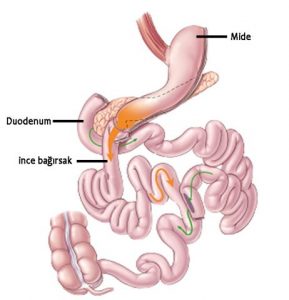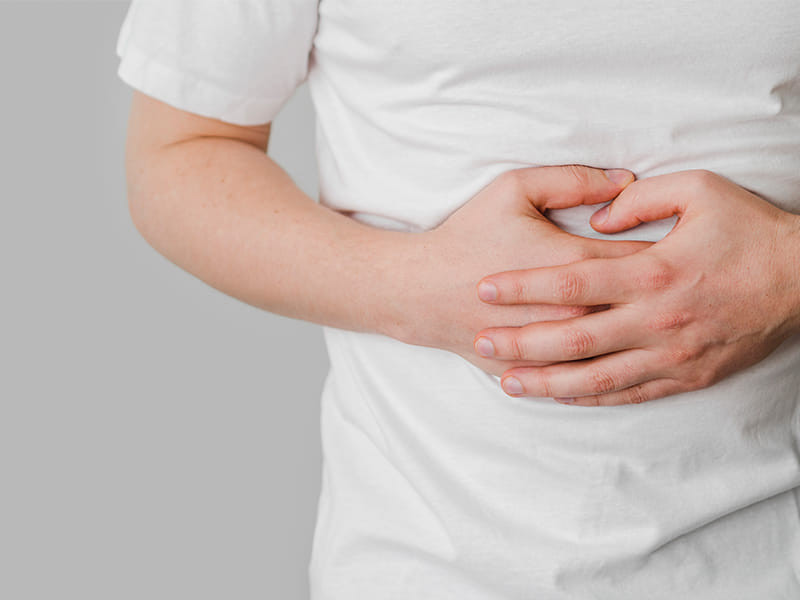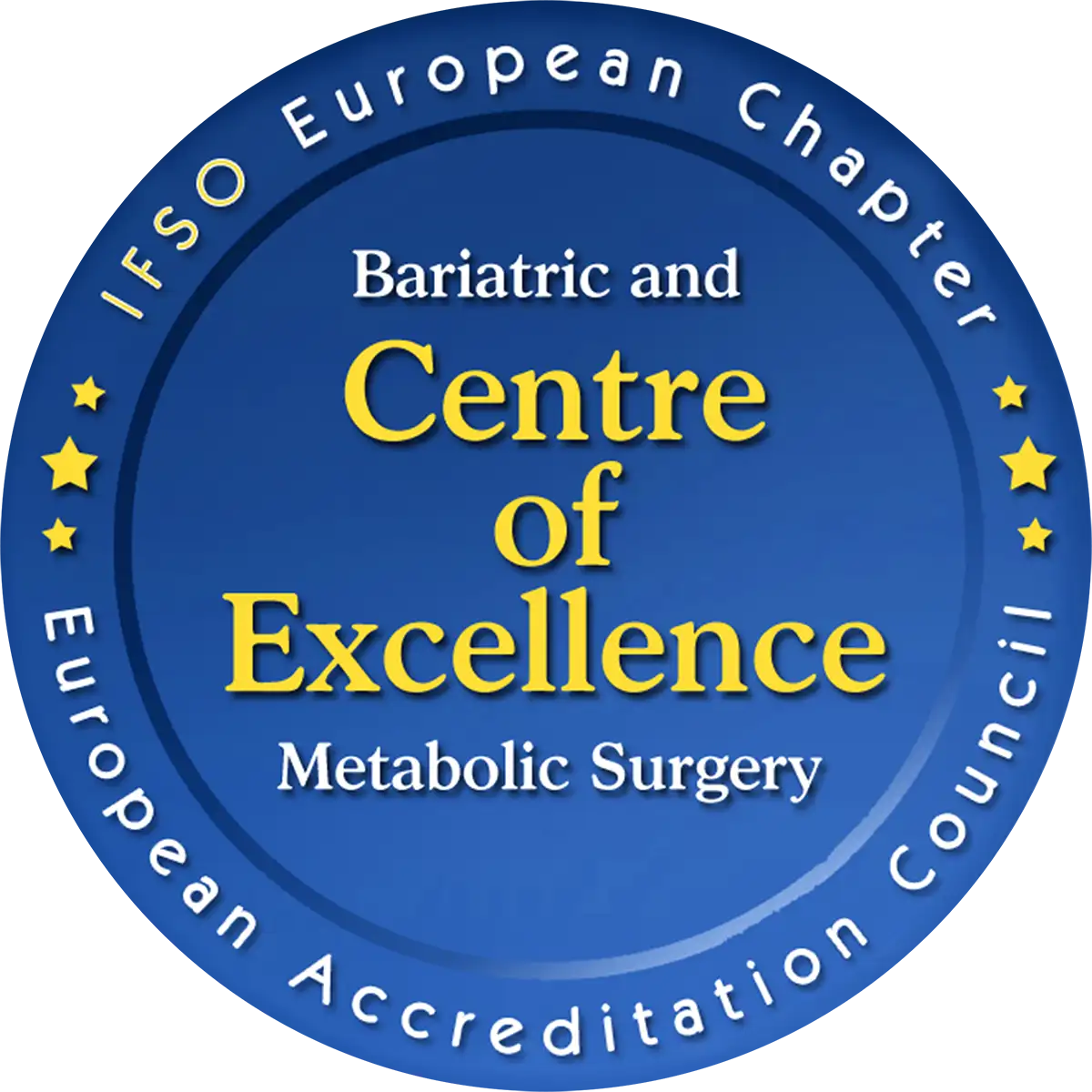
The surgical procedure consists of two stages. A large portion of the stomach is removed in such a way as to form a tubular stomach pouch. At the second stage, the duodenum is separated from just below the pylorus (the outlet of the stomach), and then the distal small intestine is brought up and connected to the outlet of the newly created stomach, in such a way as to bypass a large portion of the small intestine.
As a result, foods pass through the newly formed tubular stomach, and then directly enter the lower part of the small intestines (bypassing a large portion of the small intestines). About 3/4 of the small intestines are bypassed. The pancreatic enzymes and bile acids required for digestion get mixed with the foods at the end of the small intestine, and digestion occurs. Since a very long portion of the small intestines is by-passed in this procedure, absorption of nutrients as well as caloric intake are reduced to a considerable extent. In this surgery (as in sleeve gastrectomy and gastric by-pass), the intestinal hormones are influenced so as to suppress the appetite and provide a good blood sugar control. in the treatment of diabetes.
Its Advantages:
- It provides more effective weight loss than sleeve gastrectomy and gastric bypass. The rate of getting rid of excess weight ranges from 60 to 70% after a 5-year follow-up.
- It is more effective in blood sugar control, compared to sleeve gastrectomy and gastric bypass.
- Reduces the absorption of fat by 70%.
- Since a big portion of the small intestines are by-passed, food absorption is reduced; and as a result, weight loss continues even if patients eat in normal portions.
Its Disadvantages:
- Its complication risk and mortality rate are higher than that of sleeve gastrectomy and gastric bypass.
- It requires a longer hospital stay than the other surgical procedures.
- It may cause protein deficiencies as well as deficiencies in many vitamins and minerals (iron, calcium, zinc, fat-soluble vitamins such as vitamin A, E, K and D) in the long-term, due to serious absorption disorders.
Therefore, strictly adhering to the diet and taking vitamin and mineral supplements are very important for being able to be protected from complications in the long term.





